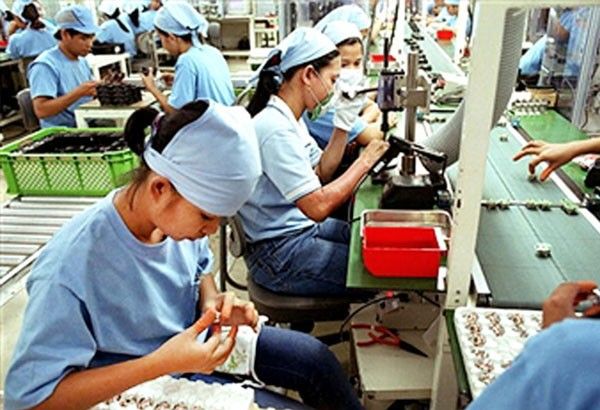US-China trade tensions worry Philippines

HAINAN - The Philippines on Monday expressed concern over the growing trade tension between the United States and China and urged the two countries to resolve their differences through negotiations.
Philippine Ambassador to China Chito Sta. Romana said a "trade war" would adversely affect the economy of Manila, whose top bilateral trading partner is Beijing.
"What we need to do is to call on...the US and China to go back to the negotiating table, to open talks and to try to resolve it through negotiations, trade talks so
as to avert a trade war and so as to prevent any fallout on the Philippines," Sta. Romana told journalists covering President Duterte's visit here.
READ: Philippines could be hit worst in Southeast Asia by US-China trade spat
"There are some reports that the Philippines could be adversely affected because some of our exports are part of the supply chain in the Chinese exports to the US. So there (is going to) be a negative impact on us and that's why we're very concerned about it," he added.
US President Donald Trump has slapped tariffs on $50 billion worth of Chinese goods as he accused China of intellectual property theft. China retaliated by imposing $50 billion worth of tariffs on US goods.
Trump, whose protectionist policies are worrying free trade advocates, responded by ordering his trade representative to consider slapping an additional $100 billion in tariffs on goods from China.
China is Phl's top bilateral trading partner
China has become the Philippines' top bilateral trading partner, with Manila's exports to Beijing growing by 8.4 percent last year. In January, China also emerged as the fourth largest market destination for Philippine goods, with export shipments valued at $591.91 million or 11.3 percent share of the total exports.
The trade tension between Washington and Beijing is expected to cast a shadow on the Boao Forum for Asia, an economic forum to be attended by leaders and
representatives of its 29 member countries including President Duterte. The forum, which was conceptualized in 1998 by then Philippine President Fidel V. Ramos,
Australian Prime Minister Bob Hawke and Japanese Prime Minister Morihiro Hosokawa, aims to promote dialogue among Asia Pacific countries and their partners.
The Boao Forum for Asia coincides with the 40th year of China's opening up to the outside world, a policy credited for transforming a once poor country into an economic power.
'Strong affirmation of need for globalization'
Sta. Romana said leaders who will attend the forum are expected to highlight the need to maintain an open trading system and to shun protectionism to prevent it from hampering the global economic growth.
"I think we’ll have a strong reaffirmation of the need for globalization," the envoy said.
"It is going to be a challenge because if a trade war breaks out, usually, generally speaking, there are no ways and it is hard for any winner to emerge and so we would also be affected."
Sta. Romana said Chinese President Xi Jinping is expected to deliver a policy speech on Tuesday before leaders of member nations, including Duterte, issue their respective staterments. International Monetary Fund managing director Christine Lagarde and United Nations Secretary-General António Guterres are also expected to address the forum.
"I think because of the threat and actually the initial salvos we’re seeing in the trade war between the US and China, there is growing interest in the Boao Forum, Sta. Romana said.
Aside from the Philippines, other member countries of the Boao Forum are Australia, Cambodia, Indonesia, Japan, Laos, Mongolia, New Zealand, South Korea, Tajikistan, Uzbekistan, Bangladesh, China, Iran, Kazakhstan, Malaysia, Myanmar, Pakistan, Singapore, Thailand, Vietnam, Brunei, India, Israel, Kyrgyzstan, Maldives, Nepal, Sri Lanka and Turkmenistan.
- Latest
- Trending



























